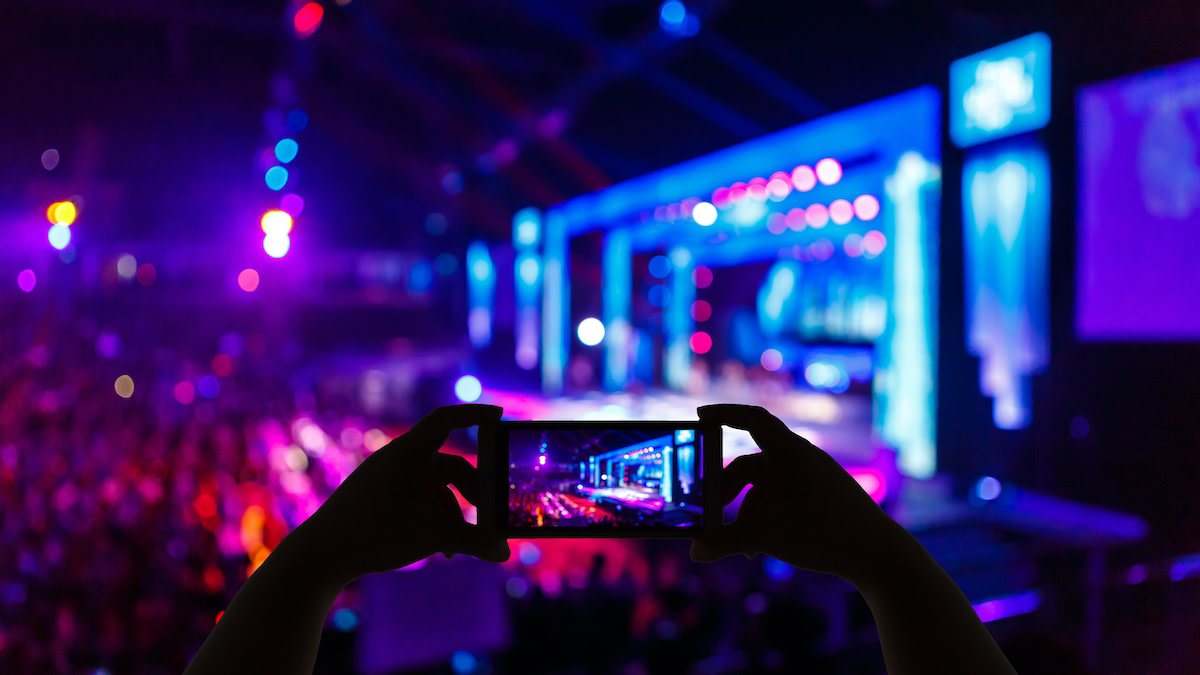Experiential Marketing Guide: 5 Types of Experiential Marketing
Written by MasterClass
Last updated: Mar 17, 2022 • 4 min read
Diversify your marketing efforts with experiential marketing, which offers immersive experiences for customers to increase brand awareness.
Learn From the Best
What Is Experiential Marketing?
Experiential marketing, also called engagement marketing, is a marketing strategy that invites a company’s followers and consumers to more directly engage with a brand via unique experiences. These efforts may take several forms—as digital or live marketing. Since experiential marketing is participatory in nature, it aims to build emotional connections between the brand and consumer to establish stronger customer loyalty and provide followers with memorable experiences.
5 Types of Experiential Marketing
There are various types of experiential marketing that may be used by organizations of all kinds, from small nonprofits to big brands. See how each augments brand activation and customer engagement:
- 1. Kiosks: Experiential marketing is a common part of trade shows or larger events where companies have individualized kiosks to make their brand stand out. Companies provide information about their products and services, and they may have giveaways, games, quizzes, or other live events.
- 2. Pop-up stores or events: Pop-up shops or activities can be fun ways for brands to reach target audiences. Ahead of the release of a new season of Arrested Development, a frozen banana stand pop-up in New York City sold the iconic food from the TV show. In another example of experiential marketing, the actor who played Hodor from Game of Thrones held the door for patrons entering Dunkin’ Donuts on the first day of winter, which tied in to both the origin of that character’s name and the drama series’ tagline, “Winter is coming.”
- 3. Festivals: Festivals provide engaging in-person experiences with many different events to appeal to a number of unique demographics. Companies often sponsor parts of a larger event or host musical acts, concerts, Q&As, panels, workshops, and other customer experiences.
- 4. Launch parties: Launch parties can be key experiential marketing events that both celebrate a new product and also give brand ambassadors a chance to share news and experiences with customers in an engaging way at a memorable location.
- 5. Interactive technology: Using interactive technology that may be new to customers is a creative way for brands to generate excitement. High-tech experiential marketing set-ups often include special headsets or virtual reality, creating interactions where customers engage more deeply with the company’s products or services.
4 Benefits of Experiential Marketing
Experiential marketing campaigns can offer brands a host of benefits.
- 1. Increasing brand awareness: Live experiences bring together large groups of people, offering companies the opportunity to tell their brand’s story and spread its message more quickly and efficiently.
- 2. Enriching lead lists: Registrations for experiential events equip companies with new customer details and contact information, which in turn can influence lead generation and future sales.
- 3. Stronger brand loyalty: A positive marketing experience can generate stronger brand loyalty between the participant and the company.
- 4. Generating buzz: Experiential marketing events can be flashy and fun, and specific hashtags can more quickly spread the word, spark curiosity, and lead to more followers on social media channels.
Experiential Marketing vs. Event Marketing
Event marketing and experiential marketing sometimes overlap; event marketing is a promotional strategy where brands host events to engage customers. As such, event marketing can be more formal, involve invitations, and feel more planned. Experiential marketing, on the other hand, can seem more spontaneous (think pop-ups) and also more two-way: Event marketing offers a large group of attendees a similar experience, while experiential marketing can have more targeted engagement opportunities for individuals.
Goals may also vary. Event marketing is an effective vehicle for word-of-mouth for a new product (as with a brand launch) while experiential marketing’s purpose is more closely tied to establishing positive relationships between customer and brand.
What Does an Experiential Marketer Do?
Experiential marketers are key figures in running a successful experiential marketing campaign. Experiential marketing managers pitch ideas for the experience and coordinate the schedules and logistics for its execution. This person or team also oversees the organizing of everything that’s needed for the experience (from vending machines, food trucks, and sound systems to promotional materials and permits).
Leading up to the experience, experiential marketers assist with the digital and content marketing to generate hype. They are also responsible for planning the experience itself and for organizing real-time engagement with attendees or passersby.
4 Tips for Using Experiential Marketing
To create a positive brand experience, try out some of the marketing tactics below.
- 1. Know your goals. Your experiential marketing strategy will serve you best if you know what metrics you are seeking. It may be hashtag usage, new followers, or email sign-ups.
- 2. Make your campaign social media-friendly. Having QR codes or signage nearby that shares your social handles, or creating a photo booth with a prominently displayed hashtag, can help accelerate brand awareness. Work with a digital marketing team to maximize social media engagement and get followers who will post pictures and promote your brand on their own social media profiles.
- 3. Be true to your brand. Your experiential marketing event may be a customer’s first impression of your brand. This means it’s important to make sure the experience aligns with brand identity, so people get a clear picture of what your brand stands for.
- 4. Find power in niche references. If your brand is large enough that it has different sects of followers and consumers, you may find success in leaning into a niche but beloved element of your brand that will unite fans.
Learn More
Learn more about advertising and creativity from Jeff Goodby & Rich Silverstein. Break rules, change minds, and create the best work of your life with the MasterClass Annual Membership.
